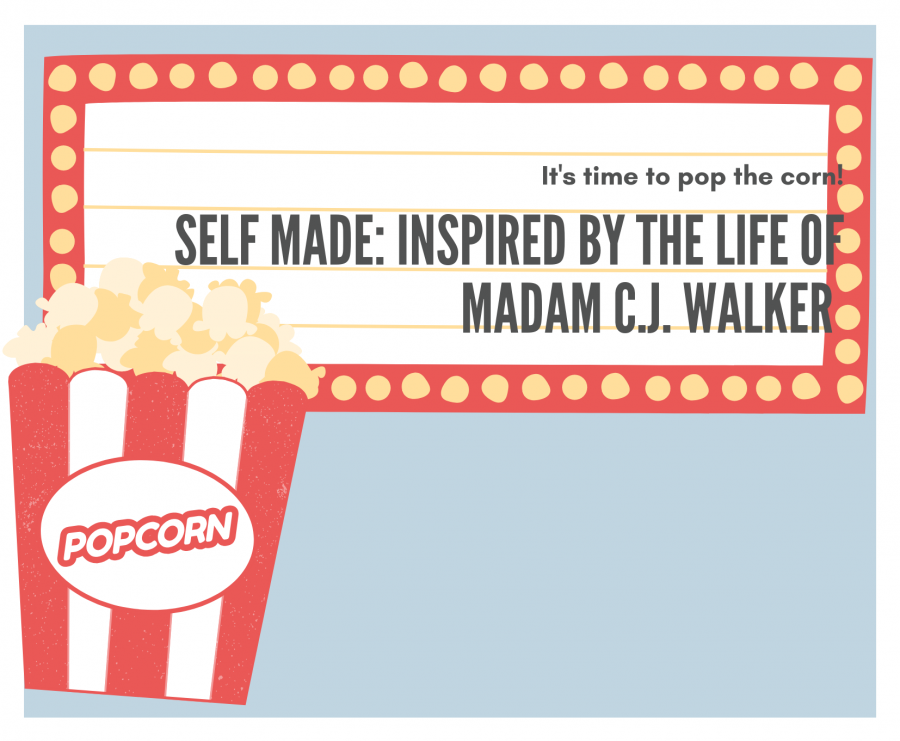Social distancing and distance learning have allowed me to watch more shows and movies on Netflix. One of the shows I watched was Netflix’s “Self-Made: Inspired by the Life of Madam C.J. Walker.”
Directed by Kasi Lemmons, the series details the real-life story of Madam C.J. Walker, a female entrepreneur and the first-ever self-made female millionaire. The script was inspired by A’Lelia Bundles’ biography of her great-great-grandmother, Madam C.J. Walker. The series also discusses colorism and misogyny in society and stars Octavia Spencer, Blair Underwood and Tiffany Haddish.
Madam C.J. Walker or Sarah Breedlove (Octavia Spencer) was one of the most prominent figures of the 20th century, yet, the general public still does not know much about her. Born to recently freed slaves on a cotton plantation, Walker was a “washerwoman” before discovering her passion in Black women’s hair care. Living with an abusive husband, Sarah was losing hope, confidence and hair when she couldn’t make ends meet. Then she met Addie Monroe (Carmen Ejogo), a light-skin hairdresser who inspired her. During her journey to promoting the “hair-grower” product she used, Sarah was dismissed, undermined, ignored, discouraged and stepped over.
The series does not sugarcoat her battles with colorism and how it had affected her self-esteem for years. In fact, the constant rejection and battles were what propelled her to create her first hair care product. The series include scenes where the main characters box each other as metaphorical presentations of their struggles against each other. Sarah has to fight against her friends, those who she helped, and even misogyny from none other than Booker T. Washington.
Some critics have criticized the show for its favoring tension over historic accuracy. For instance, the series places Walker’s reputation as a businesswoman into question when she admits to stealing the hair care formula which earns her her reputation, business and fortune. This particular plot heightens the drama but also unfortunately creates opportunity for the public to, in a society where successful African American Women are often overshadowed, undermine the accomplishments of yet another African American woman.
Nevertheless, Spencer, Underwood, Haddish and the rest of the cast bring a level of authenticity and emotion to the show, especially when discussing the politics of black hair: for many, hair care is a matter of social opportunity and social status instead of just as expressing of vanity Spencer’s performance is especially on point when she shouts to a crowd of black women, “hair can be freedom or bondage!” A century later, society is still fixated on black women’s hair, whether it should stay natural, be straightened, touched or left alone. The series brings a unique historic and feminine perspective to the debate and illuminates its personal and political nature.
More than just a movie to watch, “Self-made” arouse questions regarding the politics of black hair, sexism and colorism in the black community.


![Oppenheimer is based on the real life events of the Manhattan Project. [PHOTO COURTESY OF UNIVERSAL PICTURES]](https://blueandgoldonline.org/wp-content/uploads/2023/12/opp-1200x632.jpeg)
![NewJeans releases their new EP. [PHOTO COURTESY OF NEWJEANS KR]](https://blueandgoldonline.org/wp-content/uploads/2023/12/nj-1200x800.jpeg)
![Barbie travels to the real world. [Photo courtesy of Warner Bros. Pictures]](https://blueandgoldonline.org/wp-content/uploads/2023/12/barbie.jpg)
![Ant-Man and the Wasp: Quantumania’s movie poster. [Photo courtesy of Marvel Studios]](https://blueandgoldonline.org/wp-content/uploads/2023/05/3A577986-AF30-4231-AABF-398C630CE8EC-900x506.jpeg)
![[PHOTO COURTESY OF 88RISING WARNER]](https://blueandgoldonline.org/wp-content/uploads/2023/01/IMG_2922-900x900.jpg)
![[PHOTO COURTESY OF REPUBLIC RECORDS]](https://blueandgoldonline.org/wp-content/uploads/2022/12/midnights-cooo.jpg)